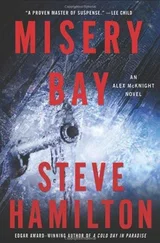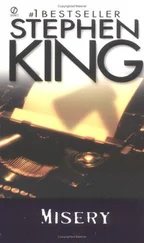Сэмуэль Шэм - Mount Misery
Здесь есть возможность читать онлайн «Сэмуэль Шэм - Mount Misery» весь текст электронной книги совершенно бесплатно (целиком полную версию без сокращений). В некоторых случаях можно слушать аудио, скачать через торрент в формате fb2 и присутствует краткое содержание. Жанр: Проза, на английском языке. Описание произведения, (предисловие) а так же отзывы посетителей доступны на портале библиотеки ЛибКат.
- Название:Mount Misery
- Автор:
- Жанр:
- Год:неизвестен
- ISBN:нет данных
- Рейтинг книги:4 / 5. Голосов: 1
-
Избранное:Добавить в избранное
- Отзывы:
-
Ваша оценка:
- 80
- 1
- 2
- 3
- 4
- 5
Mount Misery: краткое содержание, описание и аннотация
Предлагаем к чтению аннотацию, описание, краткое содержание или предисловие (зависит от того, что написал сам автор книги «Mount Misery»). Если вы не нашли необходимую информацию о книге — напишите в комментариях, мы постараемся отыскать её.
Mount Misery — читать онлайн бесплатно полную книгу (весь текст) целиком
Ниже представлен текст книги, разбитый по страницам. Система сохранения места последней прочитанной страницы, позволяет с удобством читать онлайн бесплатно книгу «Mount Misery», без необходимости каждый раз заново искать на чём Вы остановились. Поставьте закладку, и сможете в любой момент перейти на страницу, на которой закончили чтение.
Интервал:
Закладка:
These thoughts were prompted by the chart lying open before me, of a patient who was to be admitted that day:
This is the 4th Misery, 7th psychiatric admission for this 22 y.o. [year old] s. [single] w. [white] C. [Catholic] m. [male] with a CC [Chief Complaint]: "The angle of the dangle equals the heat of the meat if the mass of the ass remains constant."
"You will be responsible for doing admission interviews, physical exams, and write-ups for every patient admitted between eight and five, Monday through Friday," Nash was saying. "Any patient arriving between five and eight is the DOC's. You stay as long as it takes to finish your write-ups and orders. I leave at five sharp. Almost all admissions are scheduled. We have rare emergencies. Anything to add, Jennifer?"
Jennifer smiled. She was a willowy woman in a smart, dark dress. Her smile distorted the olive oval of her face, one side tardy and limited in its ascent. Jennifer said, "No."
"Volume," Nash said. "We make it on volume. I'll show you the operation."
Behind a bulletproof door as sturdy as a bank vault was the Admissions Unit. It was clean and bright and cheerful, with a Japanese leitmotif-rice paper screens; Toshiba TVs, VCRs, and computers placed as strategically as rocks in gravel gardens; and signs done in those letters with ballooning bottoms and slender tops that can be "seen" by computers. Nash explained at length the physical layout. He said nothing about the patients.
"What about the patients?" I asked.
"The patients?" he asked.
"The patients," I repeated.
"The software?" Jennifer asked.
"Oh, the software," Nash said. "What about it?"
"Will you be supervising me on them?" He stared at me, uncomprehending. "Or will Jennifer?" She stared at me, just as uncomprehending. "Su-per-vi-sing?" I said deliberately, loudly, as if to someone who doesn't speak your language. "So I can learn about patients?" More incomprehension. "You know, learnl"
"Learn?" Nash repeated, and then went on, "Admissions Unit is short-term. Maximum stay seven days. After that it's discharge back out, or transfer further in, to Inpatient Unit. You better start. So long."
My first admission was a fireman named George who, several months before, had been the sole survivor when, as he was driving over a snowy pass, his car had crashed head-on with a drunken driver's. His wife and three children- including a five-month-old baby-had been killed. An emaciated man with eyes sunken in horror, he was obsessed with its being his fault: "The baby gave out this happy squeal-she was in the car seat in the front, and I looked down at her for a second and heard my wife scream-'George, look out!' and then… glass everywhere, and flames. All dead. It was my fault. If only I hadn't looked at her." He looked up at me, and I felt his pain and his isolation in it. Overwhelmed, he looked away.
"That's horrible," I said. "You poor guy."
"The irony is, my two older kids always called me a 'bumblefuck.''
"What's a bumblefuck?"
"A slow, overly cautious driver. I haven't been able to talk about it to anybody. All I see is glass. Glass everywhere. I'm feeling hopeless, Doc."
"You've been cutting yourself with glass?"
A look of horror and shame crossed his face. He nodded.
"Tell me about it?" He was reluctant. I understood-he felt trapped. But I also understood that my vision was larger than his and could hold his pain. His feeling trapped was normal, and, if opened up, was an energy for healing. I used the skills I'd learned from Malik to coax us along that tricky path of talking about the trauma and the time since. It was hard work. He'd open up, then shut down. But we were getting somewhere, until suddenly Nash Michaels burst in. He dragged me out into the hallway. Jennifer was waiting there.
"You've been in there forty-three minutes," he said. "You can't take that long. These days, no health care provider can. Length of stay is down; beds are empty; admissions are doubling every year, but the daily census is falling."
"But he's in real trouble and-"
"You have seven admissions to do today by five o'clock.
Seven, and we'll try to squeeze in two more, thanks to the runup to Thanksgiving. The key to success in Toshiba is to always stay one step ahead of yourself. At least one."
"But he's desperate. He needs to talk."
"Not now. Admit him. Talk to him on your own time, before eight or after five. You can't open things up on admission-it does more harm than good. Including physical exam and write-up, you should take fourteen minutes for an admission."
"Fourteen minutes? That's impossible."
"Dr. Bozer did it. Best resident we ever had. C'mon. I'll show you."
"But this guy is desperate-a cutter. I'm getting a really good history-"
"For admission, you don't need much history. The girls on the phones in preadmission get enough usually. The goal of Admission is to admit."
"But even to admit, I've got to think about him, about his treatment."
"We do no real treatment on Toshiba. There's not enough time."
"Well, then for diagnosis. I've got to give it some thought."
"Ah!" he said, as if solving a challenging episode in charades. "That's your problem."
"Diagnosis?"
"Thought."
"What's wrong with thought?"
"Thought plays no part hi diagnosis."
"You mean go more with my feeling?"
"Feeling?"
"Feeling. What the patient feels, and what he makes me feel, what I feel with him? Affect?" He stared at me. "Go with the affect?"
"No, not the affect. The decision. Don't think, decide. As soon as I stopped thinking as a psychiatrist, everything went a helluva lot better."
"But isn't thought essential in order to decide?"
"Thought gets in the way of deciding. If you think, you leave room for doubt. If you doubt, you can't decide. Like the college boards. If you put down your first impulse, the first shot out of the box, you usually got it right, right? If you
thought, you doubted, and the other multiple-choice answers started to look better and better, so you got paralyzed, right?"
"But this isn't multiple choice; there are feelings involved here."
"Take your feelings to your therapist. We don't do feelings here. Do you know how to make Decision?" I said I did not. "Decision Tree."
"Algorithms," Jennifer said. "Technical name."
"You get raw data from the patient. You look in the back of this." He held up a well-worn copy of a small green book, the size of a child's first reader, the kind with the animals with real wool the child can touch. "Quick Reference to the Diagnostic Criteria from DSM-IV. You look in the back." He looked in the back. Sure enough there were many treelike charts, where you start at one branch and you come to a fork and decide which of those to go to, and another fork and another until you find yourself out on a limb with a single leaf and no more forks, which is Diagnosis. "The computer will do it all for you- diagnosis, medication, date of discharge. Let's go."
"Toshiba computer," Jennifer said proudly.
We went back into the room with poor George, who sat hunched over, staring at a wall. "Hi there!" Nash said, loudly and cheerfully, and pumped his hand like a politician. "Mind if I ask you a few quick questions?" Before George could answer, Nash was asking him a few quick questions.
It was astonishing. Starting with the Chief Complaint- "It's my fault"-Nash would ask a question-"You feel guilt?" — and George would start to answer. Nash was interested only in yes or no answers. If George started to explain, he'd cut him off with another question. At first they seemed to be talking at cross purposes, but soon George got into the rhythm. Wanting to please his doctor-and perhaps feeling relieved that he didn't have to confront the painful feelings that had brought him into Misery-he barked back, sprightly "Yes" and "No," moving swiftly and neatly through Decision Tree in the back of DSM-IV until his doctor smiled, rose, pumped his hand again and said, "You have 'Mood Disorder, Major Depression, Recurrent, with Melancholia, 296.33.' Your insurance will cover seven days in Misery. We'll start you on antidepressante. If we find you are suicidal or psychotic, we will rediagnose you and your insurance will
Читать дальшеИнтервал:
Закладка:
Похожие книги на «Mount Misery»
Представляем Вашему вниманию похожие книги на «Mount Misery» списком для выбора. Мы отобрали схожую по названию и смыслу литературу в надежде предоставить читателям больше вариантов отыскать новые, интересные, ещё непрочитанные произведения.
Обсуждение, отзывы о книге «Mount Misery» и просто собственные мнения читателей. Оставьте ваши комментарии, напишите, что Вы думаете о произведении, его смысле или главных героях. Укажите что конкретно понравилось, а что нет, и почему Вы так считаете.










